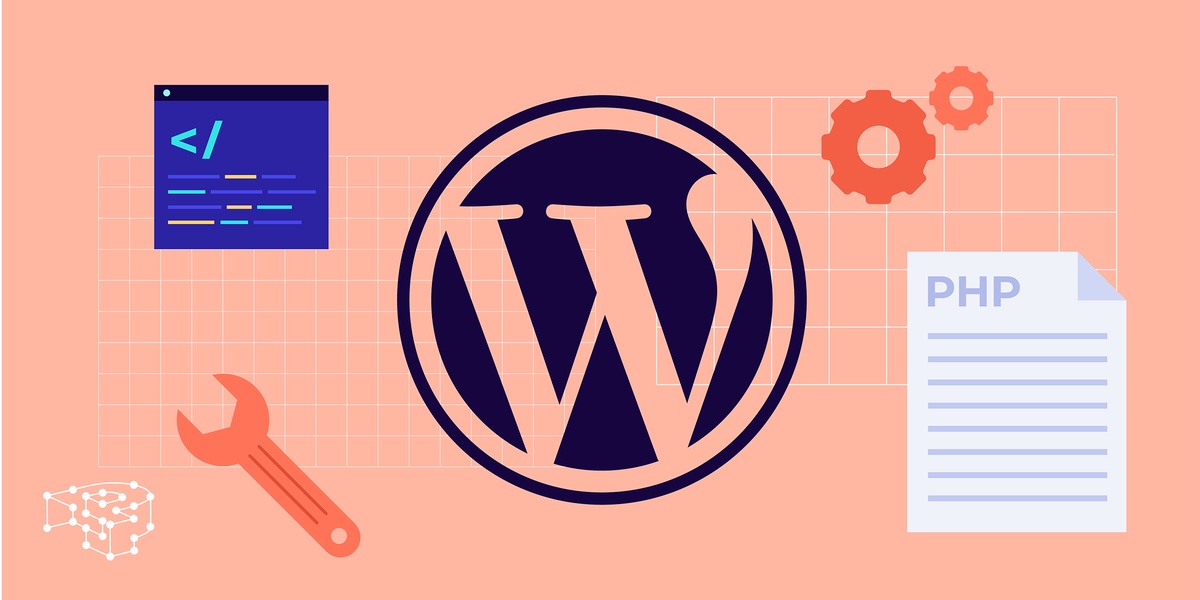In the ever-evolving landscape of web development, PHP stands as a cornerstone, especially when it comes to powering dynamic websites and content management systems. Among these, WordPress reigns supreme, offering a robust platform for building websites of all shapes and sizes. For individuals looking to dive into the world of WordPress, understanding PHP is not just beneficial but essential. In this comprehensive guide, we'll unravel the mysteries of PHP and explore its vital role in both WordPress course and advanced WordPress development.
What is PHP?
PHP, which stands for Hypertext Preprocessor (formerly Personal Home Page), is a server-side scripting language primarily designed for web development. Created by Danish-Canadian programmer Rasmus Lerdorf in 1994, PHP has since evolved into one of the most widely used languages for web development, powering millions of websites across the globe.
At its core, PHP enables developers to create dynamic web pages by embedding code directly into HTML. This means that PHP code can generate dynamic content, interact with databases, manage sessions, handle forms, and perform various other tasks necessary for building interactive websites.
WordPress and PHP:
WordPress, arguably the most popular content management system (CMS) on the internet, is built using PHP. Every WordPress theme, plugin, and functionality relies on PHP code to function. Whether you're customizing a theme, extending WordPress's capabilities with plugins, or developing bespoke solutions, a solid understanding of PHP is indispensable.
WordPress Course: A Gateway to Web Development:
For aspiring web developers, taking a WordPress course serves as a gateway to the vast world of web development. These courses cover everything from the basics of setting up a WordPress site to advanced topics like theme and plugin development. Let's explore how PHP ties into the curriculum of a typical WordPress course:
1. Understanding WordPress Core:
In any WordPress course, learners delve into the inner workings of WordPress core files, which are predominantly written in PHP. By dissecting these files, students gain insights into how WordPress processes requests, handles user authentication, and renders dynamic content.
2. Theme Development:
Creating custom WordPress themes requires proficiency in HTML, CSS, JavaScript, and PHP. A WordPress course equips students with the skills to craft visually stunning and functional themes by leveraging PHP for dynamic content generation and template hierarchy implementation.
3. Plugin Development:
Plugins extend the functionality of WordPress, allowing users to add new features and customize their websites. PHP is the backbone of plugin development, enabling developers to hook into WordPress's core functionality, interact with databases, and execute custom logic based on user actions.
4. Database Interaction:
PHP facilitates seamless interaction with WordPress's underlying MySQL database. A WordPress course elucidates how to use PHP's database manipulation functions to store, retrieve, and manipulate data within the WordPress ecosystem.
5. Security Best Practices:
Security is paramount in web development, and PHP plays a pivotal role in implementing security measures within WordPress applications. A comprehensive WordPress course covers techniques to sanitize user input, prevent SQL injection attacks, and mitigate common security vulnerabilities.
6. Performance Optimization:
Optimizing website performance is crucial for delivering a seamless user experience. PHP enables developers to write efficient code and implement caching mechanisms to enhance WordPress site performance. Through a WordPress course, students learn techniques to optimize PHP code and leverage caching plugins for improved speed and scalability.
Advanced WordPress Course: Elevating Your Skills:
While a basic WordPress course provides a solid foundation, an advanced WordPress course delves deeper into complex topics, empowering developers to create sophisticated web solutions. Here's how PHP intertwines with advanced WordPress development:
1. Object-Oriented Programming (OOP):
PHP supports object-oriented programming paradigms, allowing developers to create modular and reusable code. In an advanced WordPress course, students master OOP concepts and apply them to develop extensible WordPress themes and plugins.
2. RESTful API Integration:
With the proliferation of web services and APIs, integrating external data sources into WordPress websites has become commonplace. PHP facilitates seamless integration with RESTful APIs, enabling developers to fetch and display external content within WordPress applications.
3. Custom Post Types and Taxonomies:
WordPress's flexibility extends beyond traditional blog posts and pages, thanks to custom post types and taxonomies. In an advanced WordPress course, students harness the power of PHP to create custom post types, taxonomies, and meta fields, enabling them to build complex content structures tailored to specific use cases.
4. Multisite Development:
WordPress Multisite allows users to create a network of interconnected websites from a single WordPress installation. PHP plays a crucial role in configuring and managing Multisite networks, as well as developing custom functionality to meet the unique needs of each site within the network.
5. Scalability and High Availability:
As WordPress sites grow in complexity and traffic, ensuring scalability and high availability becomes imperative. Advanced WordPress courses delve into strategies for horizontal scaling, load balancing, and database optimization, all of which heavily rely on PHP for implementation.
6. Automated Testing and Deployment:
Adopting DevOps practices streamlines the development workflow and ensures the reliability of WordPress applications. In an advanced WordPress course, students learn to automate testing and deployment processes using PHP-based tools like PHPUnit and deployment scripts in advanced wordpress course.
Conclusion:
In conclusion, PHP serves as the backbone of WordPress courses, empowering aspiring web developers to harness the full potential of the WordPress platform. Whether you're embarking on a basic WordPress course or delving into advanced WordPress development, a solid understanding of PHP is indispensable. By mastering PHP and its intricacies, you'll be well-equipped to create stunning websites, develop custom plugins, and tackle the challenges of modern web development with confidence.
As you embark on your journey into the world of WordPress, remember that PHP is not just a language—it's a gateway to endless possibilities in web development. So, roll up your sleeves, dive into PHP, and unlock the true potential of WordPress. Happy coding!


No comments yet